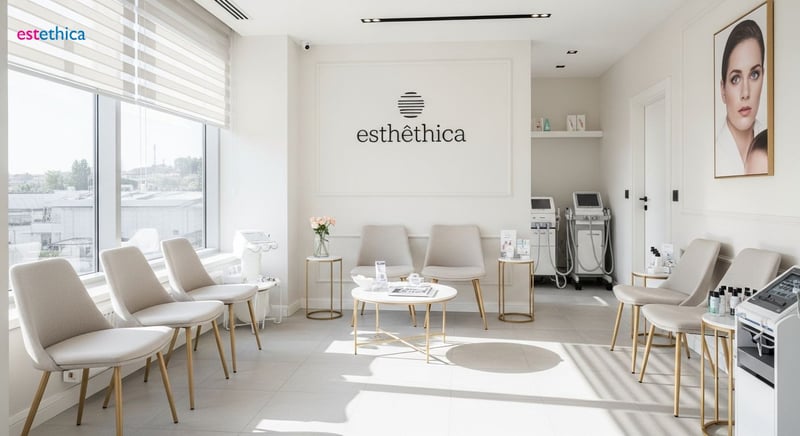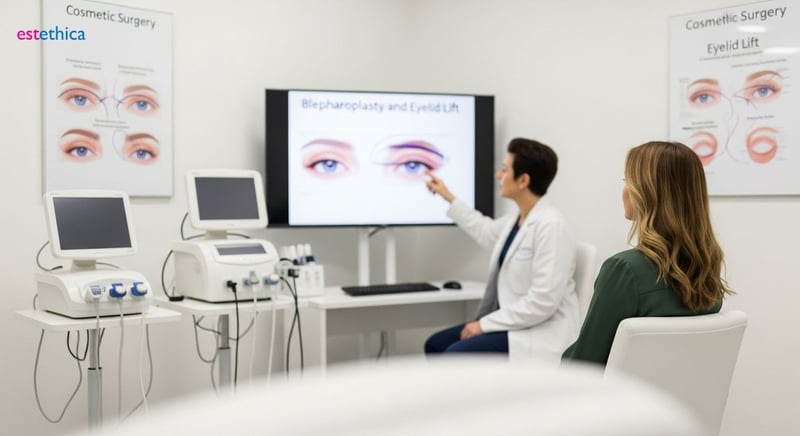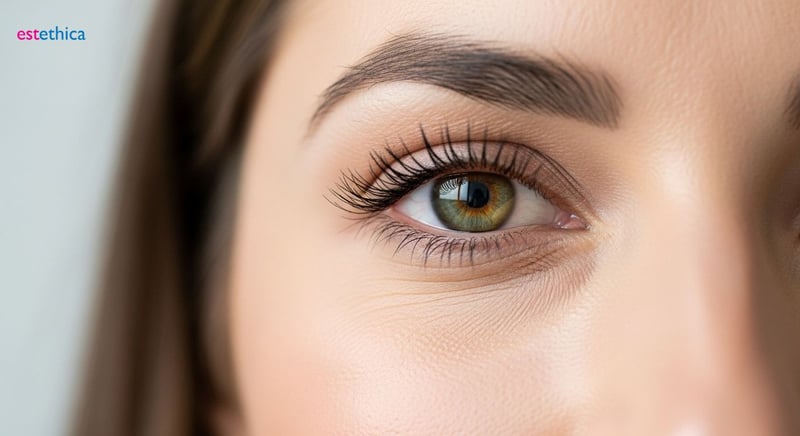Blepharoplasty: Unveiling Brighter Eyes, Renewed Confidence
Discover the power of blepharoplasty, where function meets aesthetic enhancement, promising brighter eyes and renewed self-confidence.
Blepharoplasty, commonly known as eyelid surgery, is a transformative cosmetic procedure that enhances both the function and appearance of the eyes. This surgery not only rejuvenates the eye area but also builds self-confidence by providing a refreshed and youthful look. In this article, we will delve into the various aspects of blepharoplasty, including its benefits, the surgery process, and recovery tips.
Understanding Blepharoplasty: More Than Just an Eyelid Lift
Functional Benefits of Eyelid Surgery
Blepharoplasty, commonly known as eyelid surgery, extends beyond mere cosmetic enhancements. While it undeniably rejuvenates the appearance, its functional benefits are equally significant. This procedure is often sought to correct vision impairments caused by drooping eyelids, thereby improving peripheral vision. In these cases, surgical intervention removes excess skin and tissue that obstruct the field of vision, helping patients to engage in daily activities with greater ease and safety.
Consider this: individuals experiencing severe drooping of the upper eyelids often struggle with tasks such as driving or reading. Blepharoplasty can resolve these issues by surgically lifting the eyelids, thus expanding the visual field. This functional improvement can significantly enhance the quality of life. The surgery addresses both the upper and lower eyelids separately, allowing for a tailored approach to meet specific needs. The impact of addressing impaired vision contributes to a greater sense of independence and well-being.
Understanding the Blepharoplasty Procedure
The targeted approach of a blepharoplasty involves addressing both the upper and lower eyelids according to the patient's specific needs. Excess skin and fat are removed through precise incisions, typically made along the natural creases of the eyelids to minimize visible scarring. This meticulous process not only enhances the aesthetic appeal of the eyes but also improves functionality.
- Initial Consultation: A comprehensive evaluation to determine individual suitability and discuss desired outcomes.
- Surgical Procedure: Meticulous removal of excess skin and fat from the upper and/or lower eyelids.
- Post-Operative Care: Detailed guidelines on recovery, including wound care and activity restrictions, to achieve optimal results.
For instance, in upper eyelid surgery, the surgeon removes excess skin that hangs over the eyelashes, improving the patient's ability to see. Lower eyelid surgery tackles issues like eye bag removal and reduces the appearance of puffiness by removing fat deposits. This dual approach ensures comprehensive rejuvenation and enhanced functionality.

Cosmetic Eyelid Surgery: Correcting Hooded Eyes and More
Surgical Techniques for Correcting Hooded Eyes
Cosmetic eyelid surgery, also known as blepharoplasty, can rejuvenate the area around the eyes, effectively addressing concerns such as hooded or droopy eyelids. It is often performed to improve both aesthetic appearance and, in some cases, visual function when excess skin impairs vision. The specific surgical approach varies depending on the patient's anatomy and desired outcomes. For those with hooded eyes, the surgeon typically removes excess skin and repositions underlying fat to create a more defined eyelid crease.
For example, if a patient has significant excess skin, the surgeon will make an incision along the natural crease of the upper eyelid to excise the extra tissue. In cases where the brow is also drooping, a brow lift might be recommended in conjunction with blepharoplasty to achieve a harmonious and natural-looking result. In ptosis repair, the surgeon may tighten or shorten the levator muscle to lift the eyelid to its normal position. Through meticulous adjustments, cosmetic eyelid surgery can significantly enhance the overall appearance.
What to Expect During Eyelid Surgery
Undergoing eyelid surgery involves several key steps, starting with a comprehensive consultation. This initial meeting helps the surgeon understand the patient's goals and evaluate their suitability for the procedure.
- Pre-operative Assessment: Detailed examination of eyelid structure and discussion of medical history to tailor the surgical plan.
- Anesthesia Administration: Use of local anesthesia with sedation or general anesthesia to ensure patient comfort during the procedure.
- Incisions and Tissue Adjustment: Precise incisions to remove excess skin and reposition fat, followed by meticulous closure.
The procedure typically takes one to two hours, depending on the extent of the surgery. Most patients experience some swelling and bruising following the surgery, which gradually subsides over a few weeks. Patients should follow post-operative instructions carefully, including using cold compresses and prescribed medications, to promote healing and minimize complications. Regular follow-up appointments are essential to monitor progress.

Droopy Eyelid Correction: Restoring Function and Aesthetics
Surgical Solutions for Droopy Eyelids
Droopy eyelids, clinically referred to as ptosis, can significantly impair vision and affect aesthetic appearance. Surgical intervention aims to correct the positioning of the eyelid, improving both function and cosmetic appeal. The procedure involves tightening the levator muscle, responsible for lifting the eyelid, or in some cases, removing excess skin and tissue. This can greatly enhance peripheral vision and reduce eye strain.
For instance, consider individuals who must constantly raise their eyebrows to keep their eyelids elevated. This compensatory action can lead to chronic forehead muscle fatigue and headaches. Correcting droopy eyelids eliminates the need for this compensatory mechanism, alleviating discomfort and improving overall quality of life. The goal is to achieve a natural, symmetrical appearance, ensuring that both eyes open fully and comfortably.
Achieving Symmetrical and Functional Outcomes
The primary goal of droopy eyelid correction is to restore symmetry and functionality to the eyes. This involves meticulous surgical techniques to ensure that the eyelids are aligned properly and that the patient's field of vision is improved. The outcome balances aesthetic enhancement with practical benefits.
- Pre-Surgical Evaluation: Assessing the degree of ptosis and overall eyelid health.
- Muscle Adjustment: Tightening or repositioning the levator muscle to lift the eyelid.
- Symmetry and Function: Ensuring both eyes have improved vision and a balanced appearance.
Consider the impact on an individual who struggled with reading due to limited vision caused by droopy eyelids. Following corrective surgery, they can enjoy reading without strain. Similarly, someone who felt self-conscious about their appearance may experience a significant boost in confidence. The multifaceted benefits of droopy eyelid correction underscore its value beyond mere aesthetics. Beyond that, our surgeons in estethica provide the best service for blepharoplasty by providing a customized service.
- Improved vision and reduced eye strain.
- Enhanced aesthetic appearance and symmetry.
- Boost in self-confidence and overall well-being.

Blepharoplasty Recovery: Tips for a Smooth and Swift Healing
Essential Steps for Post-Blepharoplasty Care
Post-surgery recovery is crucial for optimal results after blepharoplasty. Proper care can significantly reduce downtime and ensure a smooth healing process. This involves effectively managing pain, minimizing swelling, and diligently following all post-operative instructions provided by your surgeon. Adhering to a strict care routine not only facilitates quicker recovery but also helps in achieving the best possible aesthetic outcomes. Remember, the initial days following the surgery are critical, and careful attention to detail can make a substantial difference.
For instance, keeping your head elevated helps reduce swelling. Gentle application of cold compresses minimizes bruising. Avoiding strenuous activities prevents complications and expedites healing. These simple yet effective measures contribute significantly to a more comfortable and successful recovery. Prioritizing rest and allowing your body to heal naturally is paramount after cosmetic eyelid surgery.
- Consistent use of cold compresses to reduce swelling.
- Elevating head to minimize fluid retention.
- Avoiding strenuous activities impacts healing process.
Optimizing Your Healing Journey
To ensure a speedy and effective recovery after eyelid surgery, it’s essential to take proactive steps. These steps are important for patients looking for hooded eyes correction.
- Stay Hydrated: Drinking plenty of fluids promotes skin elasticity.
- Gentle Eye Exercises: Following your surgeon's guidance to promote circulation.
- Shield Eyes from Sunlight: Wearing sunglasses to prevent UV damage.
By integrating these practices into your daily routine, you further support the healing process and improve the overall outcome. Remember, a well-cared-for body heals more efficiently, allowing you to return to your normal routines with minimal downtime. For best recovery, it is important to work with doctors from estethica.
Understanding Blepharoplasty: A Comprehensive Guide
Precision Eyelid Rejuvenation Through Advanced Blepharoplasty Techniques
Meticulous Post-Operative Care Ensuring Swift Blepharoplasty Recovery
Frequently Asked Questions
What is Blepharoplasty and what are its primary benefits?
How does Cosmetic Eyelid Surgery correct hooded eyes?
What should I expect during the recovery phase after Blepharoplasty?
How can Droopy Eyelid Correction improve both function and aesthetics?
Ready to discover your healthiest, most beautiful self with estethica's award-winning aesthetic services?
📞 Book Your Free Consultation Today!